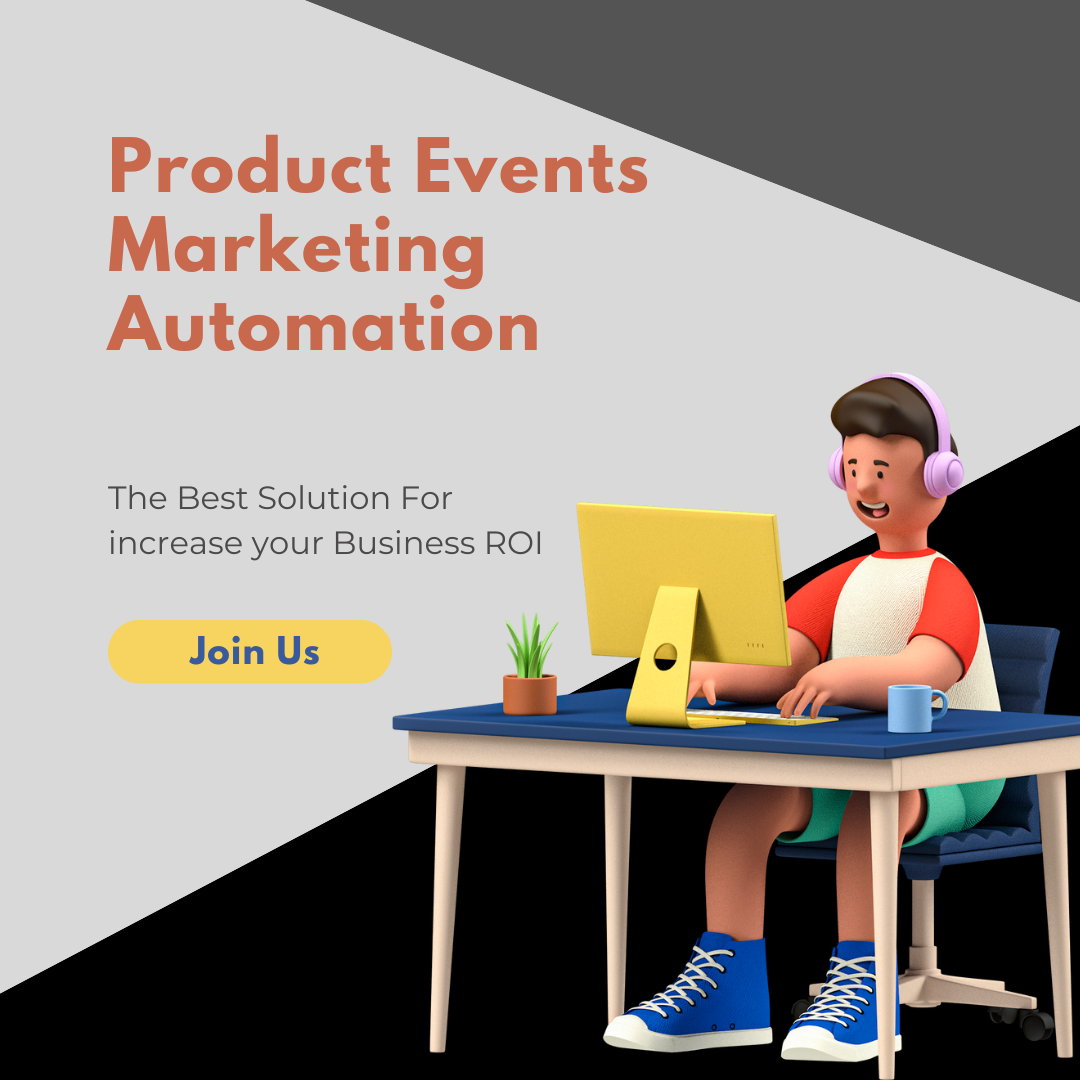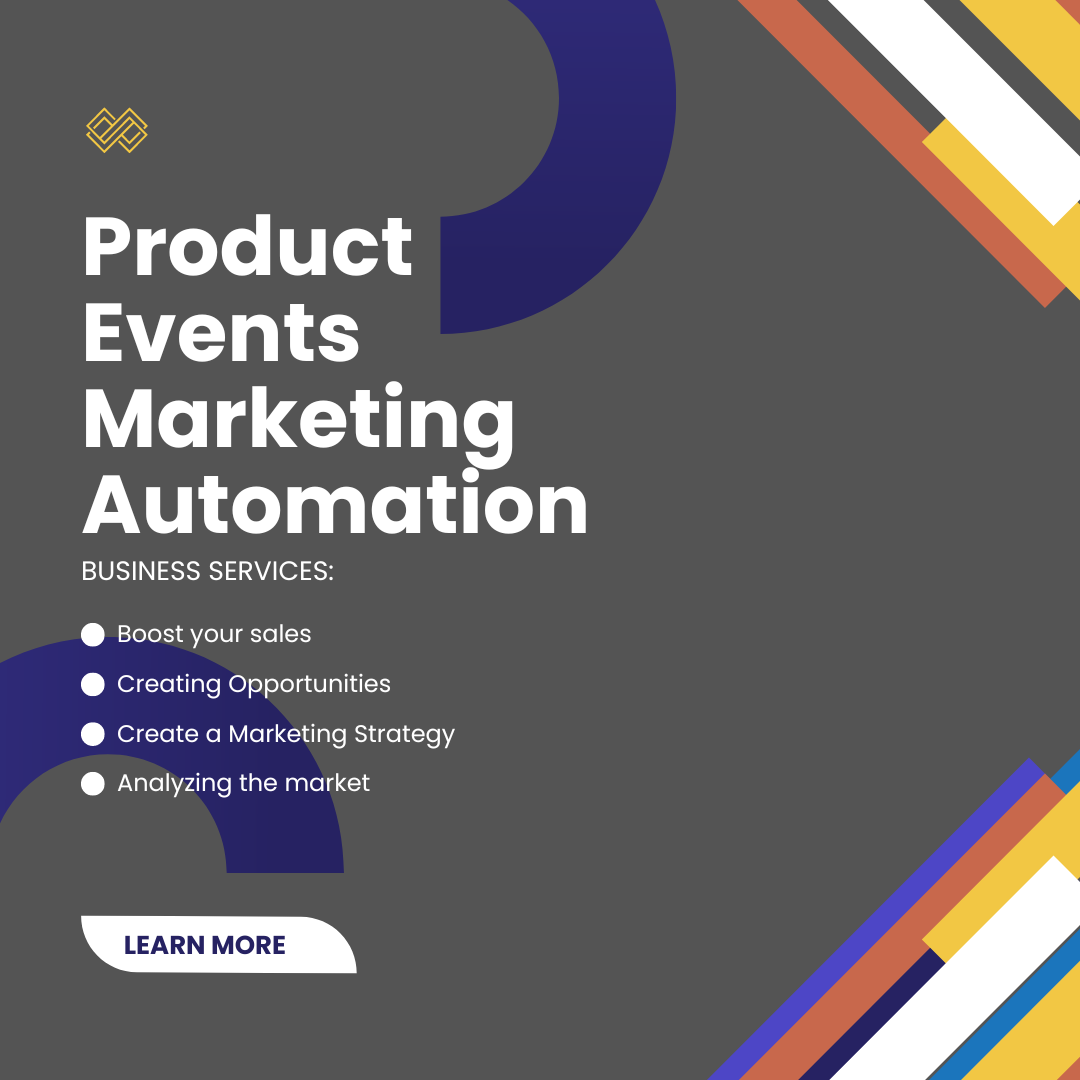Businesses are always looking for ways to make their events and new product launches stand out in the ever evolving digital world. Product Events Marketing Automation is a helpful instrument for this. Yet, what is it exactly, and how does it relate to digital marketing? Expert instruments and software can be used to automate events like product launches, seminars, and shows. The term “product events marketing automation” refers to this method. This ensures that the right messages get through to the right audience at the right time and allows marketers to prioritise their efforts with greater success. The progressive research market technique is called Product Events Marketing Automation.
Introduction
In product events, digital marketing is essential. Digital advertising strategies like social media, email campaigns, and online ads, which help create buzz before, during, and after the event, are an essential component of successful product events.. Businesses can take these initiatives to the next level and make sure that no opportunity is lost and every prospect is appropriately nurtured by implementing marketing automation.
What is Marketing Automation?
Applying innovations in technology and software platforms developed to automate tiresome marketing tasks are often referred to as marketing automation. These might include email marketing, social media posting, lead nurturing, and other tactics. Automation provides the effective execution of all promotional and administrative tasks connected with product events.
Overview of Marketing Automation Tools
Basic email marketing software to all-inclusive systems like HubSpot, Marketo, and Active Campaign that provide a full range of functionality like lead scoring, CRM connection, and analytics are examples of marketing automation solutions. With the help of these technologies, firms can easily scale their efforts and customise their approach for product events.
How Product Events Benefit from Marketing Automation
Streamlining Event Campaigns
By automating numerous campaign tasks, including scheduling emails, posting on social media, and monitoring registrations, marketing automation assists companies in organising and carrying out event campaigns effectively. By doing this, the manual workload is decreased and timely completion of all jobs is guaranteed.
Data-Driven Decision Making
. Companies can remain an eye on how many people participate to learn what works and what doesn’t, which makes easier for them to alter their plans for future events.
Types of Product Events that Can Leverage Automation
Product Launches
Before a product launch, automation technologies can be used to generate buzz by sending out customised invites, posting on social media, and even sending out follow-up emails.
Webinars
Routine tasks involve reminders, follow-up emails after the event, and registration confirmations. Webinars are an ideal way for demonstrating new goods.
Trade Shows
At massive occasions like conferences, automation makes it easier to manage participants happy, send out invitations, and acquire leads for follow-up marketing.

Why to Use Marketing Automation when Product Launching
Defining Goals
Identifying the goals is necessary in order to choose the best automation solution for what you need.
Choosing the Right Automation Tools
Not all tools for automation are created equal. Depending on your event and goals, you might desire a platform with advanced CRM capability, or you might require just basic email automation. Popular choices included HubSpot, Marketo, and ActiveCampaign.
Key Marketing Automation Tools for Product Events
HubSpot
Because it gives an extensive set of tools for lead management, email campaign developing, and performance monitoring, HubSpot is an increasingly common option for event automation.
Marketo
Marketo delivers strong event marketing tools, include lead scoring, email automation, and deep analytics.
Active Campaign
Active Campaign is an excellent choice for business owners wishing to quickly and simply automate their product event marketing because of its simple user interface.
How to Personalize Attendee Engagement Using Automation
Segmenting Audiences
One of the simplest approaches to keep participants drove is to divide them into groups determined by their habits and areas of interest. You may generate unique messages for each component using automation tools, to guarantee every participant receives the correct data.
Customizing Event Invitations
Personalised invites to an event can significantly boost the likelihood that people will show up. Automation can be employed to create personalised invites that account for the attendee’s previous interactions with your business.
Improving Lead Nurturing Through Event Marketing Automation
Tracking Leads from Events
You can keep an eye on and nurture leads employing automation programs from the time they register for the event until the follow-up stage. It guarantees that no leads are omitted by doing this.
Automated Follow-Ups
After an event, follow-ups have become essential for lead nurturing. By sending timely and customised follow-up emails, automation can help you turn attendees into clients.
Integrating Product Events Marketing Automation with Social Networking Linkage
Scheduling Posts for Product Events
Tools for automation allow you to set up social media posts for before and during the event.
Engaging Attendees on Social Platforms
You can use automation technologies to interact with guests in real time on social media platforms during the event by using polls, live updates, and Q&A sessions.
Email Marketing Automation for Product Events
Pre-Event Emails
To build curiosity and inform visitors on schedules, speakers, and product demos, among other event particulars, automated pre-event emails needs to be distributed.
Post-Event Follow-ups
Email follow-ups are essential for sustaining interest in the aftermath of the event. Sending subjects customised emails like a “thank you” and “deal” offer can be achieved via automation.
Analytics and Reporting for Product Events
Tracking Key Performance Indicators (KPIs)
Automation tools offer comprehensive information on KPIs like email open rates, social media participation, and lead conversion. You may evaluate the success of your event with the use of this data.
Analysing Event Success
You can find out what advertising strategies were profitable and where you may have to make modifications with the comprehensive data that automation solutions deliver.
Common Challenges in Product Events Marketing Automation
Overcoming Integration Issues
The primary obstacle for companies is integrating marketing automation technologies with their existing CRM systems. Yet, numerous platforms provide connectors to make this task quicker.
Avoiding Over-Automation
It’s tempting to allow your procedures to become excessively automated. Human interaction is always important, especially when communicating with consumers, even when automation might conserve time.
Future Trends in Product Events Marketing Automation
AI-Powered Event Marketing
AI will change event marketing through providing personalised recommendations, predictive analytics, and chatbots that increase attendee engagement.
Virtual and Hybrid Events Automation
Automation solutions are developing to tackle the difficulties of virtual and hybrid events as they grow more prevalent. These technologies have the ability of managing duties that include virtual networking and online registration organisation.
Conclusion
Product events marketing automation is a potent tool for companies trying to optimise the impact of their events and optimise operations. Automation could assist in making your event succeed by enhancing lead nurturing, customised attendee interactions, and helping you make data-driven decisions for your digital marketing strategy.
FAQs
What is product events marketing automation?
It is the practice of making use of automation tools to simplify marketing campaigns for product events, such webinars or product launches.
Why is marketing automation important for product events?
Organisations are able to track and nurture leads more successfully, save time, and maintain engagement.
What tools are best for automating product event marketing?
Among the well-liked tools are Active Campaign, Marketo, and HubSpot.
How can marketing automation improve lead nurturing?
Automation enables prompt, customised follow-ups, guaranteeing that leads are interested and progressed through the sales funnel.
What are event triggers in marketing automation?
Event triggers are particular activities that, when someone registers for a product event, immediately cause a response.
